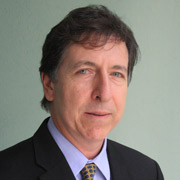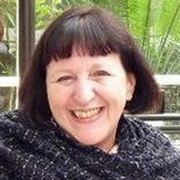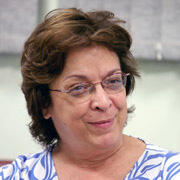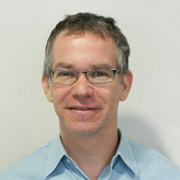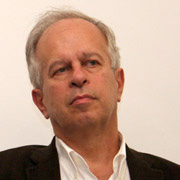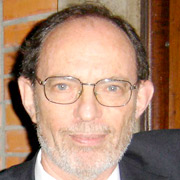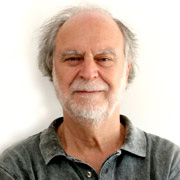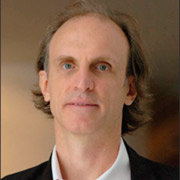people
IEA-USP Scientific Committee |
|
|
Provost for Research at USP |
President José Eduardo Krieger is provost for research at USP, where he is full professor at the Faculty of Medicine's Department of Cardiopulmonology and director of the Laboratory of Molecular Genetics and Cardiology of the faculty's Institute of Heart. He graduated from USP's Faculty of Medicine at Ribeirão Preto in 1984 and holds a Ph.D. in physiology from the Medical College of Wisconsin (1988). His post-doctorate period in molecular biology was spent at Harvard Medical School (1989-1990) and at the Stanford University School of Medicine (1990-1992). He became a lecturer of USP in 1990. Professor Krieger is a regular member of the Brazilian Academy of Sciences and president of the Academy of Sciences of the State of São Paulo. His research activities are focused on the identification of molecular markers associated with the genesis of cardiovascular diseases and the development of new therapeutic approaches for cardiac regeneration. |
|
Full Professor at USP |
Vice-President Regina Pekelmann Markus is a professor and head of the Laboratory of Chronopharmacology at the department of physiology of the University of São Paulo's Institute of Biosciences. She received her Ph.D. in pharmacology in 1974 from the former Paulista Medicine School - today Federal University of São Paulo. Markus held several posts in Scientific Societies and in the government – National Secretary for Politics and Research and Development Programs at the Ministry of Science and Technology (2003), member of the Council and several positions in the Brazilian Society for Advancement of Science (SBPC), and the Brazilian Society for Pharmacology and Experimental Therapeutics (SBFTE), where she served as President (2006-2007). Markus is a member of the Brazilian Academy of Science (ABC) and executive director of the Academy of Science of São Paulo State (ACIESP, 2012-2015). In the last ten years she has looked for the molecular and cellular basis for a cross talk between the circadian system and innate immune response. This research has also been directed to the organismic level leading to the theory of the Immune-Pineal Axis. |
|
Full Professor at USP |
Vera Lúcia Imperatriz-Fonseca became full professor of the Institute of Biosciences' Department of Ecology at USP in 1992 and is the coordinator of the Ecosystem Services Research Group of the Institute of Advanced Studies of USP. She graduated in biological sciences from USP in 1968 and holds a M.Sc. (1970) and a Ph.D. (1975) in zoology from the same institution. In 1972, she began her career as an assistant professor in zoology at USP's Institute of Biosciences (IB-USP). In 1977, she was transferred to the newly created Department of Ecology of IB-USP, where she became an associate professor of ecology in 1989 and full professor in 1992. Professor Imperatriz-Fonseca's research group at the IEA-USP emphasizes works on pollinators. She participates as a nominee of the Brazilian government in the staff for the new review of pollination, pollinators and food production, to be prepared by the International Panel on Biodiversity and Ecosystem Services (IPBES-UNO). |
|
Full Professor at UNICAMP |
Marcelo Knobel is a full professor at the Gleb Wataghin Physics Institute of the University of Campinas (Unicamp) and a special advisor on research collaborations at the Foundation for Research Support of the State of São Paulo (Fapesp). He holds a Ph.D. in physics from Unicamp, and post-doctorate stages at the Galileo Ferraris National Eletrotechnical Institute, in Italy, and at the Institute of Applied Magnetism, in Spain. At Unicamp, he leaded the Materials and Low Temperatures Laboratory (1999-2009), coordinated the Creativity Development Center (Nudecri) (2002-2006) and was the executive director of the Exploratory Science Museum (2006-2008). From 2009 to 2013 he was the provost for undergraduate programs of the university. Knobel has published more than 240 articles in refereed journals, mainly in the field of magnetism and magnetic materials. He has presented more than 80 invited seminars in several institutions, and more than 50 invited lectures in international conferences. |
|
Full Professor at USP |
Renato Janine Ribeiro became a full professor of ethics and political philosophy of USP's Faculty of Philosophy, Letters and Human Sciences (FFLCH-USP) in 1993 and is a member of the IEA-USP's board since 2011. His works are related to Thomas Hobbes, philosophy, democracy, politics, political theory, political philosophy, republicanism, university, Brazil and England. Professor Janine is the author of 9 books, 78 book chapters and 81 articles published in specialized journals, besides the work as editor of 18 books. He was the representative of the full professors in the USP Council, member of the board of the Scientific and Technologic Development National Council (CNPq) (1993-7) and of the SBPC council (1997-9), besides the secretary (1999-2001) of the latter. As director of assessment of the Coordination of Improvement of Higher Education Personnel (Capes), he directed the triennial evaluations of more than 2,500 courses of mastership and doctorship in Brazil in 2004 and in 2007. |
|
Full Professor at USP |
Hernan Chaimovich is vice-president of the Brazilian Academy of Sciences and holds a Ph.D. in biochemistry from USP's Institute of Chemistry (IQ-USP), where he became a full professor in 1984. He developed a line of research studying the effect of interfaces on the chemical and biological reactivity using micelles and vesicles as models. Along with his students and collaborators, he has contributed to the understanding of the kinetic and mechanistic effects of supramolecular aggregates in chemistry and biology. Professor Chaimovich graduated in biochemistry from the Universidad de Chile in 1962. From 1965 to 1966 and from 1966 to 1967 he was an associate researcher at the University of California Santa Barbara and at Harvard University. Professor Chaimovich participated in the creation of an interdisciplinary graduate course in biotechnology at USP and of the undergraduate program in molecular sciences at USP. He has been the university's provost for research, director of the IQ-USP and vice-director of the IEA-USP. |
|
Visiting Professor at the IEA-USP |
Massimo Canevacci is a professor of cultural anthropology, and of art and digital cultures at the Università degli Studi di Roma La Sapienza, Italy. Currently as a visiting professor at the IEA, Canevacci develops studies in the intersection of four major conceptual frameworks: self-representation, linked to decentered ethnographic methods; ubiquity, grounded on the idea of a flexible polycentrism replacing the notion of a single, politically-defined historic center; visual fetishism, related to disruption of classical dualism; and critical and experimental theory based on current new readings of the work of Theodor Adorno. His research focuses on the areas of ethnography, visual communication, art, and digital culture. He has previously been in Brazil as a visiting professor at the State University of Rio de Janeiro (Uerj) and at the Federal University of Santa Catarina (UFSC). His most recent book is 'SincrétiKa: Explorações Etnográficas sobre Arte Contemporânea' [SincrétiKa: Ethnographic Explorations on Contemporary Artes] (2014). |
|
Director of the IEA-USP |
Martin Grossmann is the IEA-USP's director and a full professor of USP’s School of Communication and Arts (ECA-USP). He was the director of São Paulo Cultural Center (2006- 2010), deputy director of USP’s Museum of Contemporary Art (MAC) (1998-2002) and creator and coordinator of ‘Permanent Forum: Between Public and Private’, a mediation and cultural action platform. He has a degree in fine arts from Armando Alvares Penteado Foundation (Faap) and holds a master from ECA-USP and a Ph.D. from the University of Liverpool. His research discusses the transition of material culture to a culture in virtuality, the relationship between contemporary art, its agents and institutions, the processes of artistic and cultural mediation and the development and maintenance of information systems for art and culture. His works are based on research and studies done on curation, action, mediation and cultural policy, museology, criticism, theory and history of art and architecture, and history of ideas. |




